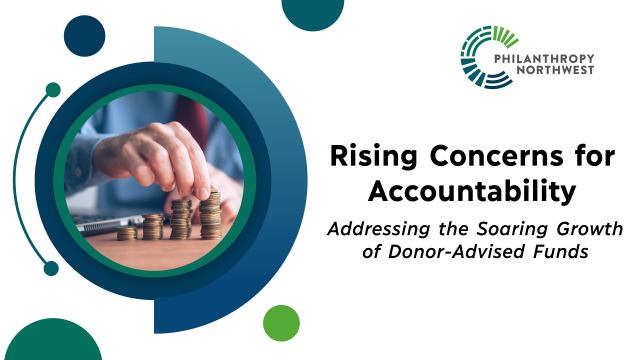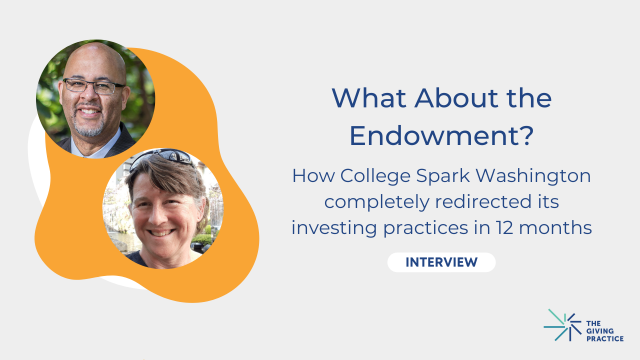Pay for Success (PFS) is a form of government contracting in which third-party investors, including foundations, commit to paying the upfront costs for providing evidence-based social services; government agencies repay investors with a modest return if the program achieves the agreed-upon outcomes. The Washington State Department of Early Learning and Thrive Washington are currently exploring the feasibility of using this model to expand a home visiting program in Washington state, with support from Philanthropy Northwest.
For other funders interested in exploring this emerging model of impact investing, Philanthropy Northwest has learned of three new opportunities through the Corporation for National and Community Service's Social Innovation Fund and the University of Utah’s Policy Innovation Lab.
Pay for Success Competition
In 2014, Social Innovation Fund (SIF) awarded eight grantees inaugural Pay for Success grant awards, which have already helped more than 40 distinct PFS projects come into development, in fields ranging from early childhood development to juvenile justice, from asthma prevention to workforce development. SIF's 2016 Pay for Success Competition will provide up to $10.6 million to eligible organizations, including nonprofits and state and local governments, seeking to support PFS transaction structuring — taking PFS projects from development to implementation, and from conception to fruition. Awarded grants will range from $350,000 to $1.8 million per year for a three year period.
Next steps:
- Read the Notice of Funding Availability and Application Instructions and learn more about Pay for Success
- Tune in to a NOFA Overview Webinar (January 11, 4 p.m. EST) or Question/Answer Session (January 26, 4 p.m. EST)
- Submit a Letter of Intent by January 13 (optional)
- Apply to be a SIF Pay for Success Transaction Structuring Grantee by February 11
Reach out to PFSApplication@cns.gov or call 202-606-3223 with any questions about the funding opportunity.
Government Innovation Fellow Program
The University of Utah's Policy Innovation Lab, an applied academic institution dedicated to facilitating innovative cross-sector and evidence-based policies and programs throughout the United States, will select up to four governments (local, state, tribal and territorial) to participate in the program through which they will receive a cash sub-award of between $75,000 and $100,000 and in-kind technical assistance worth between $50,000 and $250,000. The program is designed to grow new internal capacity to develop and implement PFS-financed and evidence-based/outcome-focused programs.
Respondents will be required to identify in their application a policy area in which they wish to explore implementation of PFS including, but not limited to: criminal recidivism, homelessness, early childhood education, workforce development and public health. Government Innovation Fellow Program RFP
A pre-proposal webinar will be held January 21, 1 p.m. MST, to answer questions. All respondents to these RFPs are requested to have at least one representative of their organization participate electronically.
Service Provider Capacity Building Program
The Policy Innovation Lab will also select up to four nonprofit service providers, including interagency collaborations and/or partnerships, to participate in a data and evidence capacity building program. Each service provider, collaborative, or partnership selected will receive a cash sub-grant of between $75,000 and $100,000 and in-kind technical assistance worth between $50,000 and $250,000. The program is designed to provide each provider with the ability to foster strategic growth, refine its evidence base, develop data and measurement strategies, and enhance the delivery of services in preparation for PFS projects and other forms of performance-based contracts. Nonprofit Service Provider Program RFP
A pre-proposal webinar will be held January 21, 1 p.m. MST, to answer questions. All respondents to these RFPs are requested to have at least one representative of their organization participate electronically.


